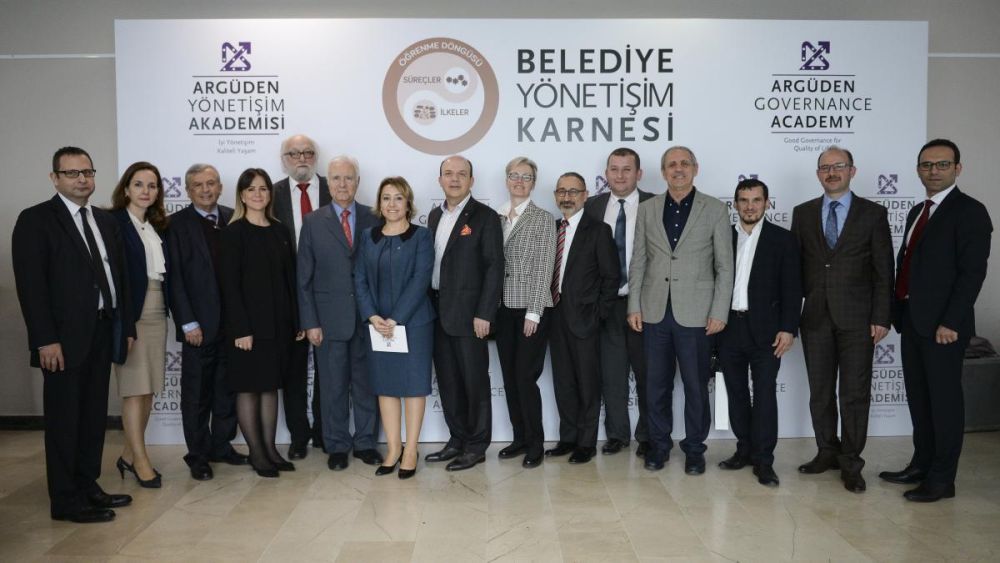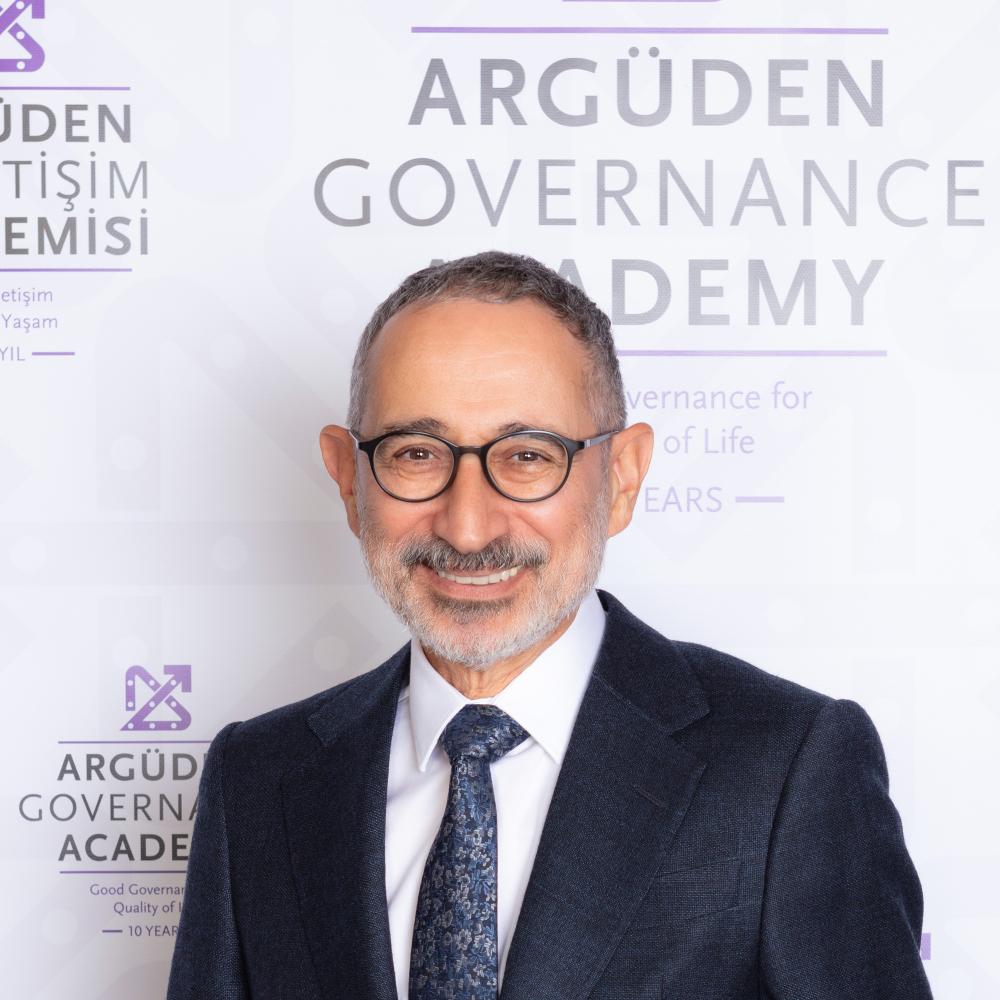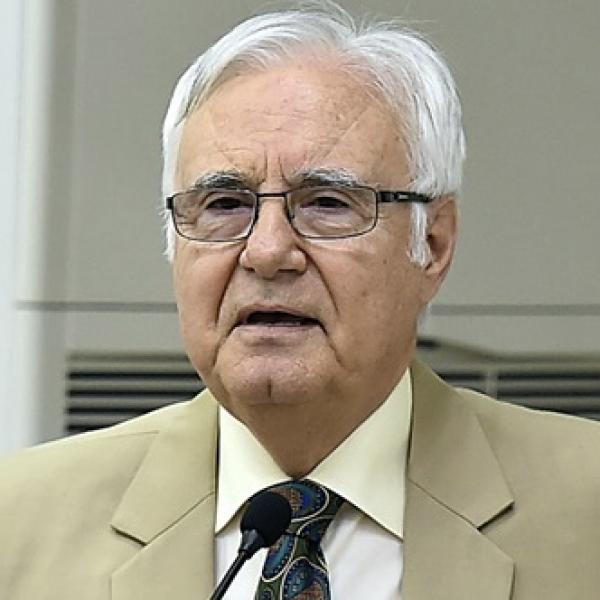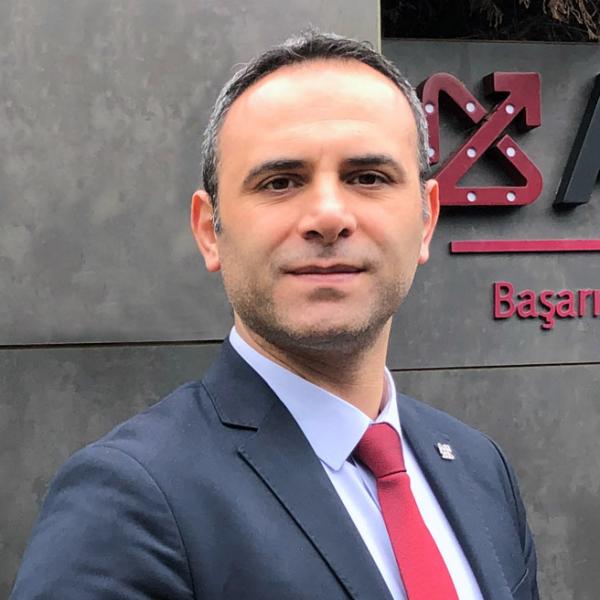Argüden Governance Academy, a non–profit initiative focusing on increasing the quality of governance at every level, published an important report. The report, titled, “Governance Scorecard of Municipalities in Istanbul Districts from a Citizen’s Perspective” was disclosed to public at a meeting in Istanbul at the Pera Museum Auditorium on April 16, 2018.
The report is based on a unique Model© developed by the Academy and utilizes publicly available the information and data shared by the municipalities through their web sites to make an assessment of municipalities’ governance performance. For this purpose, researchers examined the most recently updated available Strategic Plans, Budgets, Activity Reports, Performance Programs, and information they published on their websites. The principle was to use sources accessible to citizens.
“Our purpose is to provide a source of reference for leaders and practitioners”
In his opening remarks at the meeting, Dr. Yılmaz Argüden, Founder of Argüden Governance Academy, underlined the importance of good governance at the level of municipalities.
“Municipalities constitute an area where the citizen interactions with the government gain greater importance. Therefore, local governments are the starting point for applying good governance for inclusive development and sustainable future. Embracing the 7 good governance principles, namely consistency, responsibility, accountability, fairness, transparency, effectiveness, and participation, reinforces social trust for local governments” said Dr. Argüden.
He continued:
“Through the Model that was developed for ‘The Governance Scorecard for Municipalities’ Project, we analyzed the environment and culture within which governance in municipalities operated, i.e. the culture of governance. We conducted a citizen centric assessment of a wide variety of processes, governance principles, and their implementation and checked for evidence of continuous improvement by means of how the learning cycle is implemented within the municipality organizations. Our purpose is to provide a source of reference for leaders and practitioners who pioneer efforts for promoting good governance practices in municipalities.”
Three different perspectives, one approach!
Researchers looked into the subject from three different but complementary perspectives, all of which are considered as integral parts of a whole. The first one is the governance of the processes through which the municipalities provide their services. Municipalities’ activities are performed in four successive or overlapping processes, namely the governance of decision making processes, governance of resource utilization, governance in provision of services, and capacity building within their organizations.
The second perspective was the examination of the processes in the light of the good governance principles, which are defined by international organization by giving priority to various indicators. In identifying the governance principles, we use in this study, we preferred the framework adopted by the Council of Europe of which our country is one of the founding members, while at the same time taking into consideration our national legislation.
The third perspective was the municipalities’ performance in applying the learning cycle in their respective organizations. In this context, as regards the above-mentioned processes we questioned whether or not;
- the relevant structures were set up in the relevant areas;
- practices were carried out in line with these structures and properly integrated to each other;
- the criteria used for the assessment of these processes are properly identified and learning points were established to put learning cycle into practice.
Results of the study
The scorecards of Istanbul districts’ municipalities as a whole, display a performance between 30-65%. 16 municipalities achieve an average between 50 – 62.5%, while only Avcılar, Bağcılar and Kadıköy municipalities score above this average. Lowest ranking three municipalities scored below 32.5%.
Scorecards of district municipalities are determined under three main headings, including process governance, governance principles, and learning circle. There are detailed subsections under these headings. In general, lowest scores of municipalities are received in the fields of inclusiveness and participation, measuring and learning, and responsibility.
Significant improvement opportunities were observed in the municipalities, including high scorers.
Policy and legal suggestions for good governance
The report makes concrete policy suggestions in order to improve good governance at municipal authorities.
They include data-based management, ensuring a meaningful level of stakeholder participation, adaption of integrated thinking, and ensuring continuous learning through measurable indicators. Report also suggests legal regulations for each of these policy areas.
The model attracts international attention
This model to assess governance scorecards of municipalities, which was developed by Argüden Governance Academy, has attracted academic interest at international level. The Academy was invited to the “Asian Public Governance Forum on Multi–Level Governance and Decentralization” in March 2018 to introduce its model to the participants.
Commenting on the report at the Forum, Shabbir Cheema from Harvard Kennedy School Ash Center said: “Tools and instruments to assess governance quality is a very important issue both for practitioners and scholars. The Model developed by Argüden Governance Academy is cutting edge.”
“GOVERNANCE SCORECARDS FOR MUNICIPALITIES” PROJECT TEAM:
Project Leader Fikret Toksöz
Research Program Manager Dr. Fatma Öğücü Şen
Researcher İnan İzci
Advisory Council:
Sabancı University Emeritus Prof. Dr. Korel Göymen
Harvard/Sabancı University Prof. Dr. Ersin Kalaycıoğlu
Marmara University Doç. Dr. Erbay Arıkboğa
Retired Governor Enver Salihoğlu
About Argüden Governance Academy
The non-profit Argüden Governance Academy’s mission is to improve the quality of “Governance” by increasing trust for the institutions to build a better quality of life and a sustainable future. The Academy conducts education, research, and communication activities to disseminate the good governance culture at all levels of the society (public, civil society, private sector, and global actors), including the children.
The Academy’s vision is to become “a center of excellence in governance” and “a reference institution” by creating a knowledge and experience platform on governance at the national and international level.
Argüden Governance Academy is committed to play a pioneering role by adopting “Integrated Thinking” and “Good Governance Principles” (consistency, responsibility, accountability, fairness, transparency, effectiveness, and deployment) to all its work and stakeholder relationships.
The Academy aims to:
- Ensure that good governance is adopted as a culture,
- Raise the understanding of “the key role of good governance in improving quality of life and sustainability of the planet”,
- Guide the institutions by developing methods to ease the implementation of good governance principles,
- Inspire future leaders by promoting “Best Practices” of good governance,
- Increase the next generation leaders’ experience of good governance,
- Disseminate global knowledge and experience at all levels of the society with a holistic approach,
- Become “the right cooperation partner” for the leading institutions in the world by creating common solutions for global issues.
The Academy advocated “Integrated Thinking” during Türkiye’s presidency of the G20 and adopts this culture in all its activities. Argüden Governance Academy became the first non-governmental institution in the world to report its work as an Integrated Report since its founding.
Related People
























